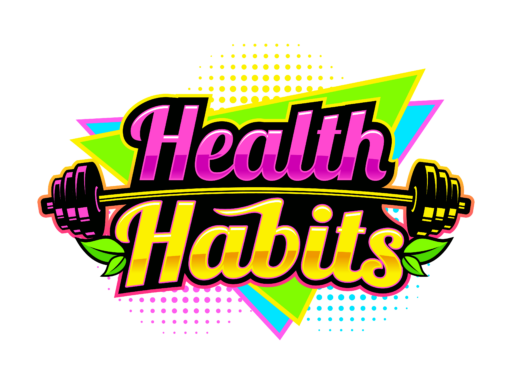While medications like Adderall and Ritalin are a gold-standard, time-tested treatment for ADHD, most people with ADHD don’t take them every day.
These amphetamines, if not used appropriately, can lead to dependence, anxiety, weight loss, and more. That’s why there’s a demand for other substances to support ADHD symptoms. And among those substances, caffeine shows among the most promise.
For example, a 2021 extensive review examined the collective research and showed how caffeine can help ADHD symptoms.
Why Caffeine Helps ADHD Symptoms: The Dopamine Hypothesis
We know that the neurotransmitter dopamine improves our motivation, narrows our attention.
And, Adderall and Ritalin, increase dopamine. The dopamine hypothesis, which we wrote about in greater depth here, has led us to investigate how other dopaminergic substances can help ADHD symptoms. Caffeine is one such substance, and probably the one with the most research behind it.
In short, caffeine increases dopamine, and increased dopamine improves attention and focus, which those with ADHD lack.
The dopamine hypothesis goes on to suggest that the root cause of ADHD may have to do with lower baseline dopamine levels.
How Caffeine Can Worsen ADHD Symptoms
While the dopamine hypothesis leads us to a simple, research-backed conclusion, there are awesome concerns with using caffeine for ADHD symptoms as well.
Disrupting Sleep Patterns
In those with ADHD, sleep deprivation worsens their symptoms.
Whether you have ADHD or not, one of the fastest paths to reducing your focus, attention, and productivity is to sleep poorly. And caffeine, notably, disrupts sleep. This is true even if you feel like you’re sleeping well.
Many regular coffee drinkers will anecdotally report that caffeine, even in the evening, doesn’t impact their sleep. However, when sleep studies show that they don’t get into the deep sleep necessary for a full recovery.
Caffeine for ADHD, then, must be used intelligently. In general, most people should have a caffeine curfew at around 12pm. It varies by person, but this is a good starting place and a safe curfew for most people.
Caffeine Dependence
The dopaminergic effects of caffeine have diminishing returns. If you’re used to taking caffeine regularly, it doesn’t increase your dopamine as much as it brings your dopamine back up to a functioning level.
That’s why those who drink caffeine daily don’t report the same increased focus and alertness as somebody who’s not “caffeine-adapted.”
And, caffeine-adapted people essentially need caffeine to focus and perform. In those with ADHD, this can be especially problematic
Excessive Caffeine Intake
At high doses (in studies this is from 400-600 milligrams, or about 3+ cups of coffee), caffeine can cause anxiety, migraines, and other counterproductive symptoms. So if you’re using caffeine for ADHD symptoms, stay well under this amount.
Caffeine Cycling: Using Caffeine for ADHD
With all of this in mind, our suggestion is to cycle caffeine. Caffeine cycling is when you only take caffeine on certain days, and strategically avoid caffeine on certain days. That way, when you do take caffeine, you will get the maximal dopamine-boosting effects that improve ADHD symptoms.
While the research on caffeine cycling specifically isn’t as robust, here are a few simple frameworks for using caffeine. These are subject to change as we learn more about caffeine and its dopaminergic effects, and hopefully specifically with regards to ADHD.
Take at Least 4 Days off Per Week
This isn’t a hard and fast rule, and using it even less will probably be better, but try to not use caffeine at least four out of seven days. If you exceed this, then you’ll lose its most potent effects when it comes to dopamine.
Keep the Dose Under 250mg
We know that at higher doses it only causes problems, which will be especially problematic for those with ADHD. 250mg is about two cups of coffee. However, we recommend starting well below this.
This is research specifically on green tea and adhd, which showed a significant positive impact on symptoms. Green tea only has about 30mg of caffeine per cup. It also has l-theanine and other potentially helpful substances for adhd.
Start at a small dose, and if that works for you, then there’s no need to even approach the 250mg limit.
Have a 12pm Caffeine Curfew
In order to avoid negative effects on sleep, wrap up your caffeine consumption by noon. Yes, this is very early, but caffeine can have a half-life of up to 9 hours, so it’s better to air on the side of caution.
So you should plan your caffeine usage around morning work sessions, which is when we’d advise trying to do most of your most attention-requiring tasks anyway.
Don’t Combine with Medication
While it may be tempting to combine caffeine with medication, this doesn’t make sense. That’s just adding more dopamine on dopamine, and will be overkill when it comes to helping your symptoms. On the days you take medication, use the dose that’s appropriate for you and avoid caffeine altogether.
Then, on the days you don’t want to take medication, you can use caffeine to make up for some of the loss of attention and focus.
Of course, your medication will be more effective. So caffeine should be used when you need some focus, but not as much as when you take Adderall or Ritalin.
This is just what makes sense to us, though. If you have ADHD and feel comfortable trying out different combinations, you can do that. Maybe you’ll find that you can take a lower dose of medication if you combine it with a cup of green tea.
More Ideas and Ingredients to Support ADHD Symptoms
Caffeine is one of the most promising non-pharmaceutical interventions for ADHD. From movement and exercise strategies, to supplements, you can check out our list of 5 ways to improve ADHD symptoms without medication.
When it comes to specific ingredients, you can check out our guide on l-tyrosine and ADHD.


August 11, 2022 at 6:42 pm
A motivating discussion is worth comment. I do think that you should write more on this subject, it may not be a taboo subject but typically people do not talk about these topics. To the next! Best wishes!!
August 30, 2022 at 4:28 pm
Thank you! We definitely will continue to touch on topics that other places won’t.